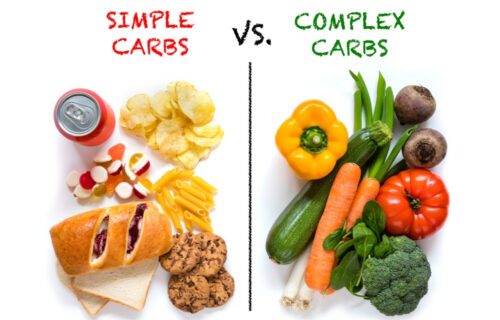
Anxiety In Menopause
I’ve got a story to tell you, one that’s sure to hit home for many of us. It’s about a woman named Sarah (let’s call her that), who found herself lost in the maze of menopause, grappling with anxiety like never before. But don’t worry, this story has a happy ending, thanks to a little bit of courage and a whole lot of support.
Sarah’s Story:
Now, Sarah was no stranger to life’s ups and downs, but nothing could have prepared her for the whirlwind that was her menopause story. Hot flushes, night sweats, mood swings—you name it, she experienced it all. But it was the anxiety that truly knocked the wind out of her sails.
Sarah felt like she was constantly teetering on the edge of a cliff, afraid that one wrong move would send her tumbling into the abyss. It impacted every aspect of her life, from her work to her relationships. She found herself withdrawing from social gatherings, afraid that her anxiety would rear its ugly head and leave her frozen in fear.
With guidance and support, Sarah embarked on a journey of healing and self-discovery. She learned about the intricate dance of hormones and how they could wreak havoc on her mental and emotional well-being. But more importantly, she learned that she wasn’t alone in this struggle.
YOU ARE NOT ALONE
Living with anxiety during menopause can drastically alter a woman’s daily life and impact her overall well-being. Imagine waking up each day with a knot in your stomach, unsure of when the next wave of anxiety will hit. It’s like carrying around a heavy burden, constantly weighing you down and making even the simplest tasks feel overwhelming.
For many women, anxiety becomes a constant companion, lurking in the shadows and casting a dark cloud over their lives. It can affect every aspect of daily functioning, from work and relationships to self-care and leisure activities. Simple tasks like grocery shopping or attending social gatherings can feel like insurmountable obstacles, leaving women feeling isolated and trapped by their anxiety.
Physically
-
- Anxiety can manifest in a variety of ways, including muscle tension, headaches, and digestive issues. It can disrupt sleep patterns, leading to fatigue and irritability during the day. Emotionally, anxiety can leave women feeling on edge, irritable, and emotionally drained. It’s like being stuck in a never-ending cycle of worry and fear, unable to find relief or escape.
Socially:
-
- Anxiety during menopause can lead to withdrawal and isolation as women struggle to cope with overwhelming feelings of fear and uncertainty. They may avoid social gatherings or cancel plans last minute, fearing that their anxiety will make them freeze up or embarrass themselves in front of others. This isolation can further exacerbate feelings of loneliness and depression, creating a vicious cycle of negative emotions.
Overall, living with anxiety during menopause can feel like navigating a minefield, with every step fraught with uncertainty and fear. It’s a challenging journey, but with the right support and coping strategies, women can learn to manage their anxiety effectively and reclaim control of their lives.
Statistics confirm it.
Anxiety during menopause is a significant but often overlooked issue that affects a substantial number of women worldwide. According to a study published in the journal Menopause, approximately 23% of women experience significant anxiety symptoms during the menopausal transition (Freeman et al., 2018). This prevalence underscores the need for increased awareness and support for women navigating this challenging phase of life. Another study found that 58% of women aged 45-55 who were experiencing perimenopause had symptoms of anxiety. In the same study 63% experienced symptoms of depression.
It was also found that the severity of overall menopause symptoms impacted the severity of anxiety. Ie the wilder the fluctuations to wilder the ride.
Who or What is to blame?
Research suggests that hormonal fluctuations, particularly the decline in estrogen levels, play a crucial role in the development and exacerbation of anxiety symptoms during menopause (Gordon et al., 2015). Oestrogen is known to modulate neurotransmitter systems in the brain, including serotonin and gamma-aminobutyric acid (GABA), which are implicated in anxiety regulation. As oestrogen levels decline during menopause, the dysregulation of these neurotransmitter systems can contribute to the onset or worsening of anxiety symptoms (Gordon et al., 2015). Understanding the hormonal mechanisms underlying menopausal anxiety is essential for developing targeted interventions and support strategies to alleviate symptoms and improve the quality of life for affected women.
What does it ‘look’ or ‘feel’ like?
The top 10 symptoms of anxiety in women during menopause can vary in intensity and presentation, but commonly include:
- Persistent worry or apprehension about everyday events or activities.
- Feelings of restlessness or agitation, making it difficult to relax.
- Difficulty concentrating or focusing on tasks.
- Irritability or mood swings, often without an obvious trigger.
- Physical symptoms such as muscle tension, headaches, or gastrointestinal discomfort.
- Fatigue or feelings of exhaustion, even after adequate rest.
- Sleep disturbances, including difficulty falling asleep or staying asleep.
- Increased heart rate or palpitations, often accompanied by feelings of anxiety or panic.
- Sweating or hot flushes, which may exacerbate feelings of discomfort or anxiety.
- Avoidance of certain situations or activities due to fear of experiencing anxiety symptoms.
These symptoms can significantly impact daily functioning and quality of life, highlighting the importance of addressing anxiety during menopause through supportive interventions and treatment strategies.
Anxiety is a symptom—a symptom that has a root cause.
What does that mean?
Think of your hormones being a yo-yo on steroids!
Oestrogen
-
- Plays an important role in our brains not just our ovaries
- Helps orchestrate our neurotransmitters (aka chemical messengers
- And it is the one swinging high / low
Progesterone
-
- It is our calming hormone and is doing a nose dive.
Serotonin – Our Happy Hormone
Dopamine – Our Pleasure or Reward Hormone
GABA – Our Calming Hormone
Cortisol – well it is also a part of the problem here
and others that have a profound effect on our moods.
-
- Before the menopause transition, your ovaries rhythmically produce oestrogen, which rises and falls along with progesterone (oh how we miss you).
- But now – that yo-yo on steroids.
So what else could it be?
#1 Hormonal mayhem
#2 HPA Dysfunction – Adrenals in overdrive
#3 Poor Gut Health & Microbiome diversity
#4 Previous history of anxiety or depression (including PMD, PMDD or PND)
What can you do?
-
- Prioritize Self-Care: Make self-care a non-negotiable part of your routine.
- Stay Active: Regular exercise is a powerful antidote to anxiety.
- Mindful Breathing: Practice deep breathing exercises to calm your nervous system and reduce feelings of anxiety.
- Healthy Diet: Fuel your body with nutritious foods that support hormone balance and mood stability.
- Limit Stress: Identify and minimize sources of stress in your life.
- Explore Natural Remedies: Consider trying natural supplements or herbs that may help alleviate anxiety symptoms.
- Establish a Sleep Routine: Prioritize good sleep hygiene by maintaining a regular sleep schedule.
- Practice Gratitude: Cultivate a mindset of gratitude by focusing on the positive aspects of your life.
- Seek Support: Don’t hesitate to reach out to friends, family members, or a support group, or maybe professional help for emotional support.
You can also take a look at my Community group live chat on the topic here.



